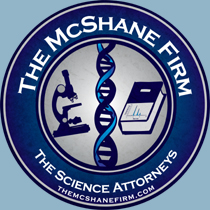False Conclusions and False Convictions: Attempts of Elucidating Pharmacodynamic Effect from an Analytical Chemistry Result-How Solely an Analytical Chemistry Result in a DUID Prosecution Cannot Scientifically Support a Conclusion of Driving Under the Influence of Drugs To download this post as a finished pdf article please click on the below: False Conclusions and False Convictions- […]

How far have we come in forensic science?
There’s an old saying: “Things aren’t as bad as they used to be.” But is this true in forensic science? Eric Lander is a Professor of Biology at the Massachusetts Institute of Technology (MIT), a member of the Whitehead Institute, and director of the Broad Institute of MIT and Harvard. He currently is co-chair of […]

Forensic Science Reform or Business as Usual?
The Chairman of the United States Senate Committee on the Judiciary, Senator Patrick Leahy (D-Vermont), and his staff announced the release of his proposed bill the “Criminal Justice and Forensic Science Reform Act (CJFSRA).” You can read his press release here about the Criminal Justice and Forensic Science Reform Act (CJFSRA). [The following is a […]

The Innocence Project weighs in on forensic science mishaps and fraudulent science
As of December 14, 2010, there have been 261 exonerees according to The Innocence Project. 74 of the 261 cases are connected to defective or fraudulent forensic science. That is over 28%. A new movie starring Hillary Swank in part exposes this phenomenon in Conviction. It chronicles the false conviction of Kenny Waters. From wikipedia: […]

Conclusion to the twelve part ISO 17025 introduction
In a series of posts, I am going to introduce the reader to the existence of ISO 17025 and its importance. I am going to introduce it in bite-sized bits for easy digestion. Just like all matters of learning, knowledge is incremental over time and builds upon previous exposure. So far we have answered the […]

How ASCLD/LAB International Conflicts with ISO 17025 and Honest Uncertainty Measurement Reporting
In a series of posts, I am going to introduce the reader to the existence of ISO 17025 and its importance. I am going to introduce it in bite-sized bits for easy digestion. Just like all matters of learning, knowledge is incremental over time and builds upon previous exposure. So far we have answered the […]

How ISO 17025 can help minimize the particular problem of fraudulent credentials of forensic scientists
In a series of posts, I am going to introduce the reader to the existence of ISO 17025 and its importance. I am going to introduce it in bite-sized bits for easy digestion. Just like all matters of learning, knowledge is incremental over time and builds upon previous exposure. So far we have answered the […]

ISO 17025 provides a simple method to develop themes to cross-examine experts
In a series of posts, I am going to introduce the reader to the existence of ISO 17025 and its importance. I am going to introduce it in bite-sized bits for easy digestion. Just like all matters of learning, knowledge is incremental over time and builds upon previous exposure. In our first post we answered […]

What can David Letterman’s Stupid Animal Tricks Teach us About Forensic Science?
What can David Letterman’s Stupid Animal Tricks Teach us About Forensic Science? One of the “types” of forensic science that is used in modern policing today is the use of specially trained canines. Canines, proponents say, can be trained for various targeted goals including cadaver search, explosive detection, drug interdiction, accelerant detection and general protection/patrol […]

The theme of this blog: Asymptotic analysis
Right now in forensic science generally, I am not too certain it can be said that most folks performing a discipline of forensic science even know their limitations. So, there is nothing to ignore. Perhaps that is why I have started this blog. This blog seeks only to expose the truth: every assay and every […]

Is forensic science relevant to the police investigator?
An article caught my attention (thanks to our friend Christine Funk) so I wanted to share it with you as it highlights the difference between how far we think we have come versus where we are in reality The case against evidence From fingerprints to high-tech CSI, forensic science plays a much smaller role than […]


